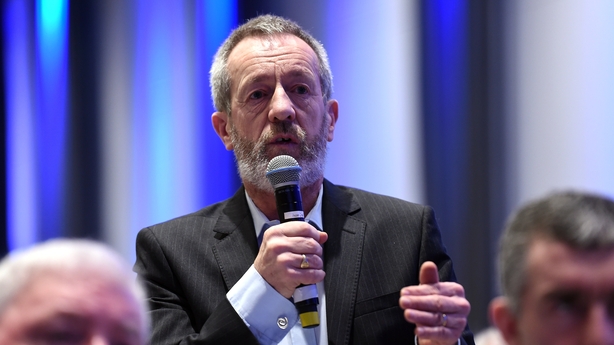GAA director of communications Alan Milton said they would be forced to re-examine the current calendar if they got into "real difficulty" with fixtures but insisted that, for the time being, the benefits of the split-season outweigh the problems.
Sunday's All-Ireland club semi-finals went ahead despite seriously adverse weather conditions, most strikingly at Páirc Esler, where the highly anticipated encounter between Glen and Kilmacud Crokes was barely visible to either paying spectators or the large TV audience due to extremely dense fog.
Kilmacud manager Robbie Brennan - whose side surrendered their All-Ireland crown in a dramatic one-point defeat - said it was "a bit of a joke" that the game had gone ahead.
"If that was round two of a local championship, it wouldn't have gone ahead...it wasn't playable," Brennan told reporters afterwards.
Less contentious was the decision to go ahead with the earlier semi-final between St Brigid's and Castlehaven in Semple Stadium, though half the pitch was covered in a layer of white frost throughout the match.
Afterwards, the suggestion arose that the tightness of the current calendar was a factor in deciding whether games should proceed in such conditions, but the GAA insist that player safety remains the paramount concern.
"The final decision comes down to the match official and our primary concern for us as an organisation is the safety and well-being of our players and the match officials on the park," Milton told RTÉ Sport after the game in Newry.
"In this instance, we were very lucky we had a referee of the status and experience of Conor Lane who made the call and he was happy for it to proceed.
Asked whether the tightly packed calendar militated against replays and postponements and whether it now weighed on the decision-making process in dicey weather conditions, Milton acknowledged it was "tight" but that the positives of the current structure were clear to see.
"I definitely think it's tight, there's no doubt about that. But you could argue it's been like that for the last number of years.
"I think if it got to the stage whereby we got into real difficulty with fixtures, we definitely would have to have a look at it.
"But I think the benefits are very obvious when you consider the structured nature of the club season because of the changes that we've made to the overall season."
Former GAA President Sean Kelly, however, believes it may now be time to re-examine the split season, saying the reforms had produced some unintended consequences.
Kelly, who led the association between 2003 and 2006, and is currently an MEP for Ireland South, cited the impact on players, officials and supporters, arguing it warranted further analysis.
"I think there will have to be an analysis done, independently and objectively, on perhaps the unforeseen consequences," Kelly told RTÉ Sport.
"Especially for players. Putting huge pressure on them. No closed season, now. Many of them going 24/7, 12 months of the year.
"We can't have any replays. Which means that often it comes down to penalties, and the effect that has on the unfortunate player who misses the decisive penalty.

"And of course the consequences for officials, who are going non-stop, trying to get games played, so they have to play them often in very bad weather.
"And for spectators, the fact that they can hardly keep up with all the games, and the cost of so many games, coming together. Many games which would be wonderfully entertaining for everybody, not just the partisans, now you'd hardly know they were on because there are so many games together.
"We need to look at all these issues. You couldn't have seen many of them in advance. But certainly, a thorough analysis will need to be done on how it is impacting overall on the strength and promotion of the GAA."

